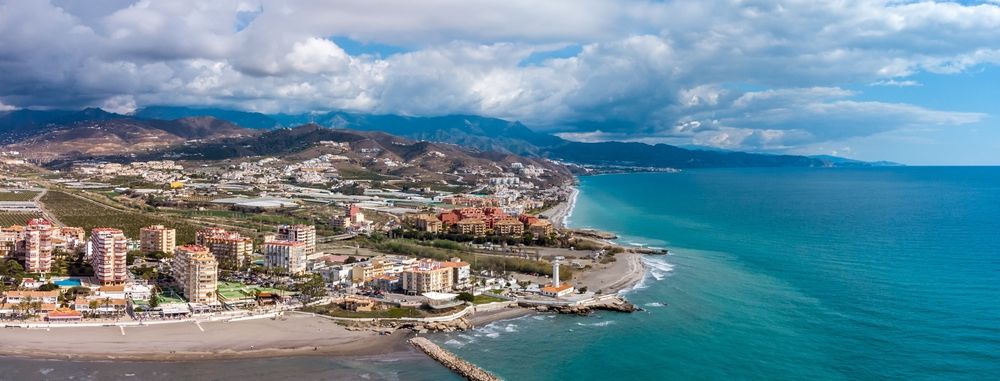
ARE YOU THINKING OF BUYING PROPERTY IN ANDALUSIA? THINGS TO TAKE INTO ACCOUNT:
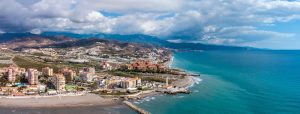
Due to its many advances, many people a lot of people are interested in buying property in Andalusia. Most home purchases by foreigners in Andalusia are concentrated in the provinces of Malaga, Almería, Cadiz and Granada, in that order. The attractiveness of Andalusia for foreign buyers lies in the climate of the region, with beach and mountain tourism, the wide variety of cultural, and culinary offerings plus good infrastructure.
For instance, the city of Malaga and its surroundings are some of the best connected in Spain. If you’re thinking of buying a home in Andalusia, either as a secondhand home or new build, with a mortgage or without it, to establish your residence in Spain or simply as an investment, we’ll try to give you the most important information you need to take into account before making a decision.
What are the costs of buying property in Andalusia?
The costs of buying a property in Andalusia are around 11% of the purchase price for secondhand homes and around 14% for new builds or off-plan homes. The main difference between the two lies in that secondhand homes are liable for a 7% ITP transfer tax, while new builds incur 10% VAT plus 1.2% for the tax on documented legal deeds. In addition to the taxes arising from the sale, one should take into account the costs of the notary and the Property Register, as well as the costs of a solicitor for the legal investigation, which are around 1% of the purchase price. Legal advice should NEVER be missing in a conveyancing process in Spain.
Can I get a mortgage for the purchase of a property?
It’s possible to obtain a mortgage with a Spanish bank for the purchase of a property in Spain even if you’re not a resident. To obtain this mortgage, it’s essential for your mortgage payments to not exceed 30% to 35% of your net income and that you can prove regular income that comes from earnings, either as an employee or as a self-employed person, or similar.
Some banks can offer up to a maximum of 70% of the purchase price, but this percentage depends on each bank. You’ll need to prove that you have funds of your own that are sufficient to pay the rest of the price and the conveyancing costs. A mortgage valuation is essential since, if it’s below the purchase price, the percentage will be applied to the value of the mortgage valuation and not to the purchase price.
What documents do I need when buying property in Andalusia?
- To buy a property in Andalusia, you’ll need a Foreigner’s Identification Number (NIE), which you can request at a National Police Station. You’ll use this number to identify yourself in Spain for tax purposes or for any other business that involves personal identification.
- The estate agency processing the sale, the developer, the bank or the law firm advising you will require you to fill out a KYC (Know Your Clients), in compliance with European money-laundering regulations. They will also ask you to prove the source of the funds you’ll use to complete the purchase through the use of your tax documents, etc. You’ll need your original passport to be identified property if you’re signing a private purchase contract or if you’re signing the public deed of sale before the notary, in addition to the NIE number.
Where in Andalusia should I buy?
This is a matter of personal preference, the climate you’re looking for and the connections you’ve got to travel from your country of origin. In other words, this is the time it’ll take you to travel from your place of residence to the city or area in Andalusia where you’d like to buy a property. Andalusia has to large airports: Malaga and Seville; as well as two secondary airports: Granada and Almería. By train, the AVE high-speed line runs through the capitals of Andalusia: Granada, Córdoba, Malaga and Seville. The road network is generally in good condition and a large portion of the Autonomous Community of Andalusia is connected through its network of public roads.
The coastal area of Andalusia are the areas with the highest population density, as there are many people who choose to live near the sea to work or retire. The weather also plays an important role in your decision. The western part of Andalusia is more humid than the East, with great contrast between Huelva and Almería, which are at either end, to give you an example.
What if I buy a property in Malaga?
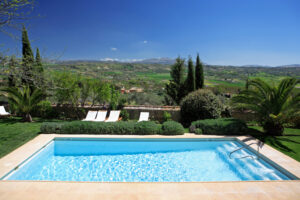
Malaga and the Costa del Sol are the areas where most foreigners invest and buy properties. From Nerja to Estepona, including cities like Torrox, Rincón de la Victoria, Malaga proper, Torremolinos, Benalmádena, Mijas, Fuengirola, Marbella or Estepona is the areas with the highest population density and the largest real estate investment in Andalusia.
The interior of Malaga is also of great interest, with municipalities in the Axarquía such as Vélez Málaga, Cómpeta, Frigiliana, Viñuela, Alcaucín and Sayalonga showing strong demand for properties among foreigners, both in urban and rural areas.
The western part of Malaga, Alhaurín de la Torre or Alhaurín el Grande, along with the Guadalhorce Valley or Coín, are also very coveted areas in the non-resident property market. Natural attractions such as the Sierra de las Nieves National Park and the Caminito del Rey have also driven the presence of buyers and interest in the area.
And if I buy a property in Granada?
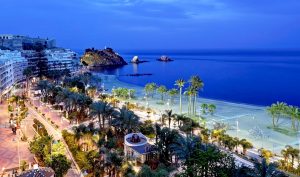
Coastal areas in Granada, such as La Herradura or Almuñécar, also referred to as the Costa Tropical, have been consolidated for many years in the property market for non-residents. Likewise, the city of Granada, a first-class city for tourism and monuments, along with the Lecrín Valley and la Alpujarra, are also an investment focus for property buyers.
What if I buy a property in Cadiz?
From Sotogrande to Conil de la Frontera, including the city of Cadiz and all the white villages, are also desired destinations in the property market.
We can highlight the Sotogrande area, which belongs to the municipality of San Roque, with its small marina, as an area of great interest to tourists and property buyers. Being located close to the Costa del Sol and 100 kilometres from Malaga airport, this is a very attractive area with less tourist saturation than the Costa del Sol.
What are the costs of buying property in Andalusia?
Prices in Andalusia can vary greatly depending on the area in which you’re looking to buy. In the highest price ratio, we’ve got Malaga and the Costa del Sol, followed by cities like Seville, Cadiz or Granada. In general the coast is more expensive than going further inland.
When it comes to taxes, the purchase and sale of secondhand home in Andalusia benefits from low taxation in comparison to other Autonomous Communities like Valencia, Catalonia or the Balearic Islands. These lower tax levels also translate to the Inheritance and Gift Tax.
Should I buy a secondhand home or something newly built?

Usually, if you buy a home newbly built or off-plan, you’ll need to wait 2 or 3 years for construction to finish and be able to use the home. If you have no problem waiting and your goal is to buy a new home, with more modern common facilities, this would be a good option.
But if you’re not willing to wait a long time and you’ll want to enjoy the property in the short term, you should look for a used home, taking into account the time it may take you to do the necessary renovations.
Currently, it is true that there is more demand than supply in the new-build market, for which reason there are waiting lists with potential buyers interested in acquiring a new home in many developments.
Can I live permanently in Andalusia?
If you’ve got an EU passport, you can live in Andalusia without having to apply for any type of visa. You’ll have to take into account that, if you’re living in Andalusia for over 183 days per calendar year, you’ll be liable to file for income tax in Spain, as this is set out in the tax regulations, as you’ll be considered tax resident in Spain.
If you’re from outside the EU, for instance, if you’re American, Canadian or British, you’ll be able to stay in Spain for a maximum of 90 days within the last 180 days. This means that, to live in Spain, you’ll need a visa, such as a golden visa, a non-lucrative visa or a digital-nomad visa.
Can I rent out the property?
Buying a property to rent as an investment in Andalusia is one of the main reasons behind the current interest levels in the property market. Malaga and the entire Mediterranean coast, as well as the most important tourist cities, have a high volume of purchases intended for letting, especially holiday lets.
At the tax level, an EU citizen not tax resident in Spain renting out a home will need to pay 19% of the IRNR profit tax obtained from this rental. Currently, all income obtained from rent in the calendar year can be declared between 1 and 20 January of the next year in a single tax form, for each owner of the property. If you’re not an EU citizen and non-tax resident in Spain, you’ll have to pay 24% of the profit obtained from the rent, instead of 19%.
If you’re tax resident in Spain and you let your property in the long term, i.e. if the home becomes the usual residence of the tenant, you can apply for a IRPF tax exemption on the profit obtained from the rent, ranging from 50% to 70% of the total profit obtained.
Can I have problems with holiday lettings?

As discussed in more detail in our July post, in some municipalities in Andalusia as well as in other cities in Spain, holiday lettings are being limited or restricted. From 22 February 2024, the Malaga City Council has restricted this activity drastically, as have done other places in the Costa del Sol, such as Fuengirola and others that will get added to that list. These limitations and prohibitions must be taken into account during the purchase process, as it is very important for investor buyers to have information and legal certainty about the possibility of engaging in holiday lettings in the property or properties they wish to buy.
It’s obvious that there’s a trend towards restricting these operations in the most saturated tourist areas. As it is up to each city council to decide on this matter in terms of the properties located within its municipal boundaries, it’ll be necessary to look at the municipal regulations issued by the city council in which the property where you want to invest is located. This is the only way to confirm if that property meets the requirements to engage in holiday lettings, so ask your lawyer.
It should also be noted that owners’ associations are able to ban these operations. For this reason it’s also necessary to look at their byelaws in order to guarantee that, at the moment of the sale of the property, this activity hasn’t been banned by the owners’ association.
Should I buy as a company or as a private person?
From a taxation point of view, if a single person or a married couple intends to buy a property in Spain, for renting it out or to sell it in the future, it doesn’t make sense to set up a company. This isn’t only about the tax savings compared to buying and selling the property as a privateperson but also about the fact that more taxes are paid, in addition to the annual cost of the company itself.
- If you buy a property through a non-resident company and decide to rent it out, you’ll need to pay 19% non-resident income tax (IRNR) in Spain on the rental income, just as if it were owned by a privéperson.
- If you buy a property through a Spanish company and decide to rent it out, you’ll need to pay 23% corporation tax (IS) on the profit obtained by the company in the calendar year. Once the Spanish company has settled its corresponding taxes and has a net profit, if you want to distribute this profit to the shareholders, you’ll only be able to do this through dividends. These will also be taxed at 19% to 24%, depending on the amount.
Taxes when buying property in Andalusia through a company
If you complete the purchase through a company non-resident in Spain, we also understand that taxes will be due in the country of residence over such dividends, unless these dividends are tax-exempt in the country of residence of the company. In addition to this double taxation, having a company entails annual fixed costs in terms of taxation and accounting that can be around 2,000-2,500 euros per year.
You also need to take into account that, if the shareholder uses the property privately, the company will have to declare such use as income at the market renting price. In other words, the Treasury would interpret that the shareholder will need to pay the rent and, therefore, the company will need to pay taxes on it.
It would be interesting to set up a company if the intention was to engage in different property investments, where the company will indeed engage in actual operations. Also, if there are several investment partners, a company may logically be the appropriate legal vehicle to govern the commercial relationship between them.
Is it important to hire a lawyer when buying property in Andalusia?
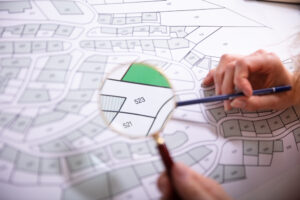
The purchase of a property requires specialised legal advice, enabling you to guarantee your investment and reduce the risk of problems or legal issues with such property.
At C&D Solicitors, we specialise in providing property advice to foreign clients. This whether they are individuals seeking to buy a second home or an investment property in Spain, or investment companies and investment funds seeking to grow their asset portfolio and take advantage of the capital gains they can obtain in the property market and in property operation.
Purchase guidance in your own language
We offer “full service” advice throughout the process in your native language: English, Dutch, Swedish, French and German. You can call us at +0034 952 532 582, send us a WhatsApp message at +34 639 54 16 02 or write to us at info@cdsolicitors.com. We’ll look into your case, we’ll send you information about the process and a cost estimate for this, with no commitment whatsoever.
Author: Gustavo Calero Monereo, lawyer at C&D Solicitors (Torrox & Malaga, Andalusia)

